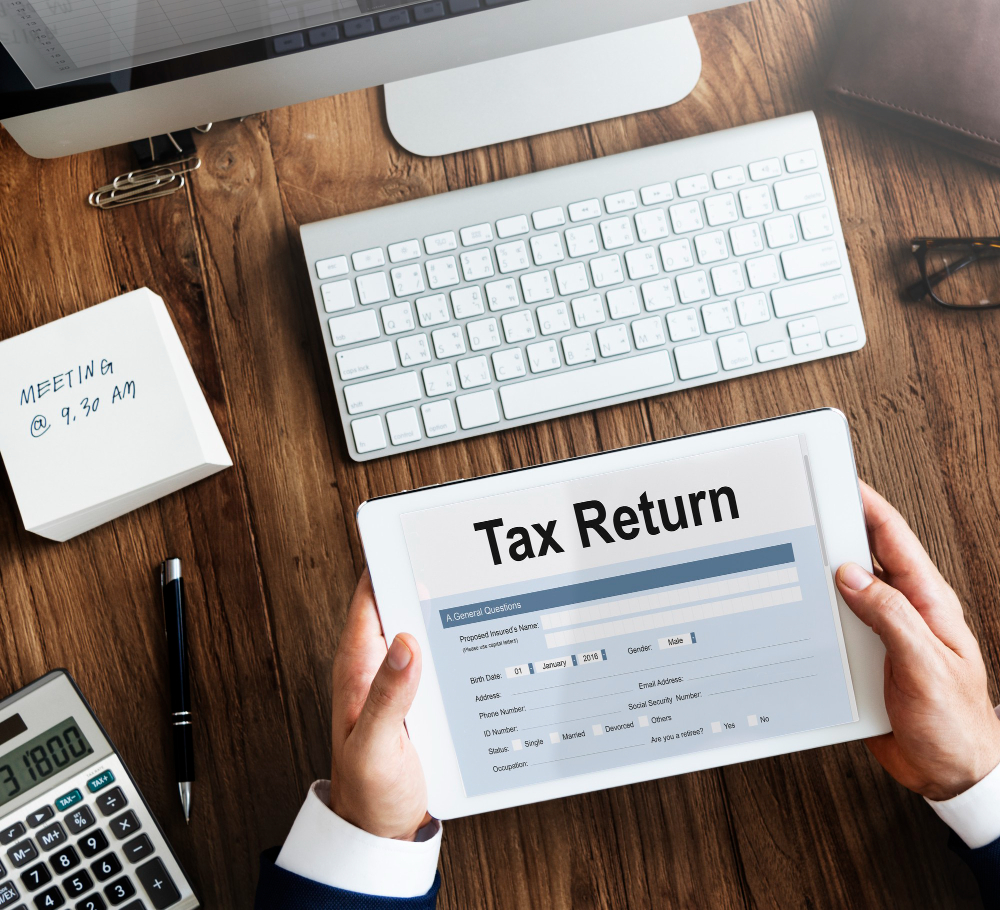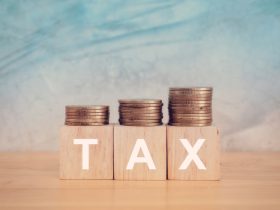There are plenty of ways of reducing your tax bill legally, whether you’re an employee or self-employed, an investor, landlord or pensioner.
Tax planning is a key aspect of any financial planning. Proper financial tax planning helps in understanding the tax benefits you qualify for.
Depending on your scenario, the end of tax season can lead to hundreds or thousands of pounds in your pocket.
In this blog, find out how to pay less tax, including verifying your tax code, making the most of tax-free allowances and plenty of additional strategies to minimise your tax burden.

What is tax planning?
Anyone responsible for paying taxes should consider tax planning UK.
That includes low- to medium-income earners, pensioners, property investors, futures and derivatives traders, stock, shares and crypto traders, high taxpayers, sole traders, small firms and massive estate owners.

You can pay more taxes than necessary or fail to save as much as possible if you don’t have a tax plan.
Personal tax planning lets you make the best use of the tax deductions, exemptions, and benefits the government provides to reduce your burden.
Effective tax management and planning result in a healthy inflow of money, which supports an individual’s economic growth.
When trying to decrease your tax liability, you never want to have to deal with legal issues.
Tax planning comes in to make sure that measures are taken to avoid any risk of litigation afterwards.
6 Best tax planning strategies for 2022/23
1. Check your tax code
Your tax code determines how much tax HMRC will deduct from your salary. It is listed on your payslip. Check your tax code every year or after switching jobs to ensure it’s correct for your situation.
If you’re on the wrong code, you may be entitled to pay less in taxes in the following months or claim a refund for previous years. If you underpaid tax, you’ll probably have to pay the difference. You might be placed on an emergency tax code or given a tax bill to execute this.
2. Meet the tax return deadline
Ensure you don’t miss the deadline if you’re one of the 12 million people who must submit a self-assessment tax return; doing so is expensive and avoidable.
You have until 31 January 2023 to submit your 2021–2022 return online. But if you want to file on paper, you’ll have to submit it by 31 October 2022.
If you miss the deadline, you pay a £100 fine – even if you don’t owe any tax.
Afterwards, it’s £10 a day until you meet the £1,000 limit, and there are additional penalties if your submission is six or twelve months late, if you’ve not paid your tax bill on time.
3. Reclaim overpaid taxes
Assuming your personal allowance is used each month equally, HMRC may tax you more than you should have if you are a non-taxpayer or your income unexpectedly falls during the year.
Fill out form R40 to reclaim it from HMRC, or contact them.
When completing a self-assessment tax return, any refund that HMRC owes you won’t be processed until it receives the money.
If you plan and file long before the January deadline, the tax officials will likely be less busy, and you might get your refund sooner. So it is best to file as soon as possible.
4. Claim tax credits
Tax credits offer additional money to those looking after children, disabled workers and other employees on low wages.
You can claim two primary types: working tax credit and child tax credit.
By 2024, those receiving tax credits will transition to Universal Credit.
You can submit your application earlier but cannot claim tax credits if you already receive Universal Credit.
5. Consider putting money into a pension.
One of the most tax-effective methods to save for retirement is to make contributions to a pension.
The general rule is that if you live in the UK and are under 75, you are eligible for tax relief and can contribute to pension each tax year.
Most individuals can put in up to £40,000 a year (the current annual pension allowance), but this can rely on how much you make or if you’ve already taken money from a pension.
You can receive up to 40% tax relief on everything you pay. For instance, if you contribute £800 to a pension like a Self-Invested Personal Pension (SIPP), you’ll immediately receive 20% (£200) in basic-rate tax relief, increasing your total contribution to £1,000.
Higher-rate taxpayers can claim a further £200 (20%) in tax relief through their tax return, while 45% rate taxpayers can claim back up to £250 (25%) on top. As tax thresholds have been revised in the recent budget statement, the relief is restricted to 20%
Only top tax rate payers can claim the full tax relief on your tax form.
Different rates and tax bands pertain to Scottish taxpayers. Funds in a pension can’t usually be accessed until age 55 (rising to 57 from 2028).
6. Consult with a financial advisor
You could be happy to do your tax planning most of the time. But you might discover that you need additional assistance navigating complex topics like uk inheritance tax planning.
A financial advisor could assist you in creating a plan so that you can spend less on taxes and have more money to devote toward your financial objectives.
Tax preparation aggregates all your data and generates an accurate return for any given tax year.
UK tax planning enables financial advisors to devise and implement crucial efficiency techniques on your tax return both now and in the future.
Tax professionals have done the same job and are well versed in addressing seemingly over-complicated issues.

Final thoughts
It’s crucial to plan for taxes as you create your financial plan. Planning your taxes carefully is essential for any wealth-management plan.
Other benefits include growing your small business, maximising your income, protecting you from fines, and saving for your child’s education or a retirement fund.
As part of your tax planning, you should take tax planning advice from an expert who can help you avoid fines, launch a college fund for your kid, save money for retirement, expand your small business, and improve your quality of life.










